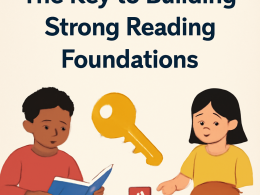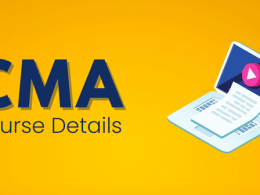Do you know someone who’s highly intelligent but seems to make irrational decisions? Or maybe that person is you? It turns out that intelligence doesn’t always equal rationality. In fact, there are several cognitive biases that can lead even the smartest people to deny risks and make poor choices. From the Dunning-Kruger Effect to the Overconfidence Effect, this article will explore why our brains sometimes work against us and how we can overcome these biases for better decision-making. So get ready to dive into the fascinating world of cognitive psychology and discover why being smart isn’t always enough when it comes to making good choices!
Cognitive Biases
Cognitive biases are mental shortcuts that our brain takes to simplify the decision-making process. These shortcuts can be helpful in some situations, but they can also lead us astray when we’re faced with complex and uncertain information.
One common cognitive bias is confirmation bias, which is the tendency to seek out information that confirms our pre-existing beliefs while ignoring evidence that contradicts them. This bias can lead us to make decisions based on incomplete or inaccurate information.
Another cognitive bias is the availability heuristic, which occurs when we overestimate the likelihood of an event because it’s easy to recall examples of it happening. For example, if we hear about a plane crash on the news, we may become overly fearful of flying even though statistically speaking, it’s still one of the safest forms of transportation.
There’s anchoring bias, where we rely too heavily on an initial piece of information when making subsequent decisions. This could happen during negotiations where someone sets a high price for something and then brings down this price in exchange for something else without changing its actual value.
By understanding these cognitive biases and how they affect our thinking processes, we can learn to overcome them and make more rational decisions in all aspects of life.
The Dunning-Kruger Effect
The Dunning-Kruger Effect is a cognitive bias where individuals with low ability or knowledge overestimate their competence. This can lead to poor decision-making and risk denial, as they may not fully understand the consequences of their actions.
Interestingly enough, those who are highly competent may underestimate their abilities due to a fear of failure or imposter syndrome. In contrast, those with lower abilities may have high levels of confidence due to ignorance about what they don’t know.
The Dunning-Kruger Effect has been observed in various fields such as politics, education, and even driving. For example, one study found that drivers who scored poorly on a test measuring their driving skills were more likely to rate themselves as above-average drivers.
It’s important to be aware of the Dunning-Kruger Effect when making decisions and evaluating our own abilities. Seeking feedback from others and acknowledging our limitations can help us make better choices and avoid the pitfalls of overconfidence.
The Ego Boost Theory
The Ego Boost Theory is a cognitive bias that suggests our self-esteem and ego can play a major role in decision-making. Essentially, this theory holds that we are more likely to make decisions based on what will boost our own egos rather than making rational choices.
When it comes to risk denial, the Ego Boost Theory can be particularly problematic. People who are overconfident in their abilities or knowledge may be more likely to deny risks because acknowledging those risks would mean admitting they were wrong or didn’t know as much as they thought.
Research has suggested that people with higher levels of narcissism may be more susceptible to falling into the trap of the Ego Boost Theory. They may have an inflated sense of self-importance and believe themselves to always be right, which can blind them from seeing potential dangers or negative outcomes.
Understanding how the Ego Boost Theory works is crucial for overcoming cognitive biases related to risk denial. By recognizing when our ego is at play, we can begin to make decisions based on logic and reason rather than simply trying to protect our own sense of self-worth.
The Overconfidence Effect
The Overconfidence Effect is another cognitive bias that plays a role in risk denial. It refers to the tendency of individuals to overestimate their abilities and underestimate risks. In other words, people tend to be overly confident in their judgments and decisions.
This effect can be seen in a wide range of contexts, from financial decision-making to medical diagnoses. For example, a trader may believe they have more information than everyone else and make risky investments based on their confidence alone. Similarly, a doctor may overlook important symptoms because they are convinced that they know what is wrong with the patient.
The Overconfidence Effect can also lead people to take unnecessary risks or not take necessary precautions. A person who believes they are invincible may engage in dangerous activities without considering the potential consequences.
It’s important for individuals to recognize when they are experiencing the Overconfidence Effect so that they can make more informed decisions and reduce their risk of harm or loss.
Implicit Association Tests
Implicit Association Tests (IATs) are psychological tests that measure the strength of associations between concepts and evaluations or stereotypes. The test is designed to measure unconscious biases, which may affect an individual’s decisions and behavior without them realizing it.
The IAT measures how quickly people associate certain words with either positive or negative categories. For example, a test might ask participants to categorize images of different races as “good” or “bad”. The results can reveal implicit biases that people may not even be aware they hold.
While some have criticized the validity of IATs, research has shown that these tests do have predictive power when it comes to predicting real-world behavior. They have been used in studies on racial bias, gender bias, and other forms of prejudice.
It’s important to note that while IATs can identify potential biases in individuals’ thinking patterns, they do not necessarily indicate intentional discrimination or bigotry. In fact, many people who score high on an IAT for a particular group actually hold egalitarian beliefs about that group consciously.
Implicit Association Tests serve as a helpful tool for understanding our own thought processes and identifying areas where we might need to work on dismissing unconscious biases.
Conclusion
Intelligence and rationality are not always the same thing. Many cognitive biases can lead people to deny risks, even when they have access to accurate information. The Dunning-Kruger effect can make people overestimate their abilities and underestimate the complexity of a situation. The ego boost theory suggests that some individuals may engage in risky behaviors to feel more confident about themselves. The overconfidence effect can lead people to take risks without considering all the possible outcomes.
Implicit association tests have shown that deep-seated biases exist within many individuals that affect their decision-making processes consciously or unconsciously. Recognizing these biases is crucial for making informed decisions based on objective facts rather than subjective beliefs.
Therefore, it’s essential to be aware of our cognitive limitations and recognize our inherent biases while evaluating risk perception accurately. By doing so, we’ll be able to make better-informed decisions by being more rational in our thought process – which is important in every aspect of life from everyday situations like buying a product online or making career choices; managing finances wisely as well as protecting ourselves from health hazards such as COVID-19.
Remember: Intelligence doesn’t always equal rationality but acknowledging your personal bias is an excellent way towards becoming thoughtful about what you believe and how you act upon those beliefs!












